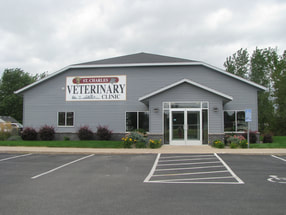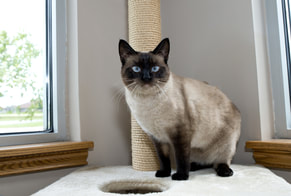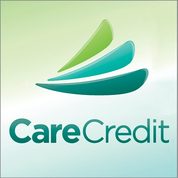St. Charles Veterinary Clinic is a full-service veterinary medical facility, located in St. Charles, Minnesota. The professional and courteous staff at the St. Charles Veterinary Clinic seeks to provide the best possible medical care, surgical care and dental care for their highly-valued patients. We are committed to promoting responsible pet ownership, preventative health care and health-related educational opportunities for our clients. The St. Charles Veterinary Clinic strives to offer excellence in veterinary care to St. Charles, MN and surrounding areas. Small animal appointment times vary from Monday to Friday. Please take a moment to contact us today, to learn more about our veterinary practice and to find our more information about how the St. Charles Veterinary Clinic can serve the needs of you and your cherished pet.
|
Use the app to:
Text when you need us Book appointments Request RX refills Share your pet’s health records |
Sitting in the Starbucks drive-thru thinking about how your pet needs a prescription refill? We’ve all been there. We’re excited to share that we’ve added Otto to the team! Download the app for instant access to our staff when you need us.
|
MONTHLY NEWSLETTER
National Pet Hydration Awareness Month
Summer is heating up, and while we love soaking up the sun and enjoying the warm weather,
everyone could use a little help with their hydration, pups included!
We do our best to make sure our dogs are getting enough water; it can be hard to get
them to drink unless they feel they really need it, and most of them desperately need to
drink more water. In a study from the Journal of the American Veterinary Medical Association (JAVMA),
they found that 30% of dogs were diagnosed with dehydration by their vets, meaning that
even more dogs need extra hydration. Here are a few helpful tips to help your dog stay
happy, healthy, and hydrated all year long!
Ice Treats
Water isn’t the only way your dog can get the hydration they need, and a great way to
do that is to make frozen treats out of flavors they love. You can make ice cubes out of
bone broth–watch out for sodium, onion, and garlic content–and give them to your dog
to chew on throughout the day, or to add to their water making it a little tastier for them.
Freezing fruits and vegetables like watermelon or carrots is another great way to provide
your dog with added hydration, as well as a tasty treat.
Feeding Fresh Food
Fresh-Cooked food, also known as wet food, retains the moisture that naturally occurs in food
which gives your dog added hydrating benefits. Fresh food has 70-80% more moisture
in it than kibble–which is literally just dehydrated food–meaning that it is inherently hydrating.
If your dog prefers kibble, though, a great tip is to pour some water, bone broth, or
coconut water over their food, so they get the added hydrating benefits while they eat.
P.S. feeding your pup canned food can help manage your pup’s water intake.
Pack Wisely
When you are heading out for a walk or a trip to the dog park with your dog
in the summer, especially if it is while the weather is especially warm, always make sure
to pack enough water. There are thousands of different travel dog water bottles and dispensers
online, so choose the one that works best for you. You can even add some ice to it before you
leave for an extra cooling effect. While many dog friendly shops and dog parks have communal
water bowls, they can be breeding grounds for bacteria, viruses like Parvo, fungus, and protozoal
infections like Giardia, all of which are more dehydrating in the long run. If you forget to
pack water, or it seems like too big of a hassle, plenty of businesses, like Starbucks or Dunkin’,
are happy to give you a big glass of ice water for your dog along with their pup cup.
Unfortunately, dogs can’t tote around their Emotional Support Water bottle,
but with these tips they can hydrate as if they can. Good hydration is the key to a long healthy life,
for all living things, so let’s make sure to give our dogs all they need to thrive this summer and beyond!
By The PetPlate Team in Seasonal, Wellness




